Related Research Articles

The Gottfried Wilhelm Leibniz Prize, or Leibniz Prize, is awarded by the German Research Foundation to "exceptional scientists and academics for their outstanding achievements in the field of research". Since 1986, up to ten prizes have been awarded annually to individuals or research groups working at a research institution in Germany or at a German research institution abroad. It is considered the most important research award in Germany.
Patrick Cramer is a German chemist, structural biologist, and molecular systems biologist. In 2020, he was honoured to be an international member of the National Academy of Sciences. He became president of the Max Planck Society in June 2023.

David S. Eisenberg is an American biochemist and biophysicist best known for his contributions to structural biology and computational molecular biology. He has been a professor at the University of California, Los Angeles since the early 1970s and was director of the UCLA-DOE Institute for Genomics & Proteomics, as well as a member of the California NanoSystems Institute (CNSI) at UCLA.

John Kuriyan is the dean of basic sciences and a professor of biochemistry at Vanderbilt University School of Medicine. He was formerly the Chancellor's Professor at the University of California, Berkeley in the departments of molecular and cell biology (MCB) and chemistry, a faculty scientist in Berkeley Lab's physical biosciences division, and a Howard Hughes Medical Institute investigator. He is a member of the National Academy of Sciences and he has also been on the Life Sciences jury for the Infosys Prize in 2009, 2019 and 2020.

Tej Pal Singh is an Indian biophysicist known for his work in the fields of rational structure-based drug design, structural biology of proteins and X-ray crystallography. He has played an active role in the development of drug design in the fields of antibacterial therapeutics, tuberculosis, inflammation, cancer and gastropathy.
Joseph Stewart Fruton, born Joseph Fruchtgarten, was a Polish-American biochemist and historian of science. His most significant scientific work involved synthetic peptides and their interactions with proteases; with his wife Sofia Simmonds he also published an influential textbook, General Biochemistry. From 1970 until his death, Fruton worked extensively on the history of science, particularly the history of biochemistry and molecular biology.
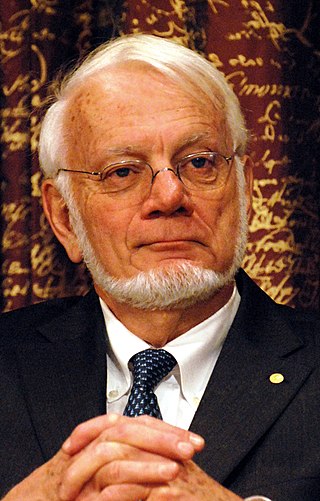
Thomas Arthur Steitz was an American biochemist, a Sterling Professor of Molecular Biophysics and Biochemistry at Yale University, and investigator at the Howard Hughes Medical Institute, best known for his pioneering work on the ribosome.

Roger Sidney Goody is an English biochemist who served as director at the Max Planck Institute for Molecular Physiology in Dortmund from 1993 until 2013. Since 2013 he is Emeritus Director of the institute.

Donald Crothers was a professor of chemistry at Yale University in the United States. He was best known for his work on nucleic acid structure and function.
Annette Gabriele Beck-Sickinger is a German chemist and biologist. She has been a full professor of Biochemistry and Bioorganic Chemistry at the University of Leipzig since 1999.
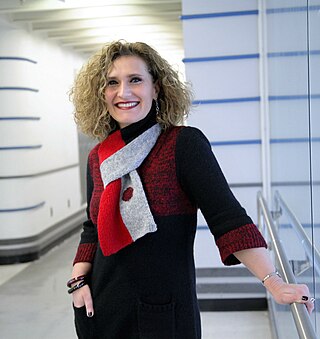
Marta Filizola is a computational biophysicist who studies membrane proteins. Filizola's research concerns drug discovery the application of methods of computational chemistry and theoretical chemistry to biochemical and biomedical problems.
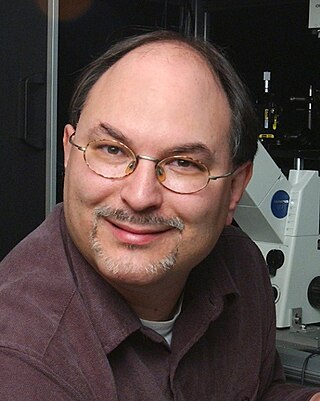
Nils G. Walter, Dr. Ing., is the Francis S. Collins Collegiate Professor of Chemistry, Biophysics, and Biological Chemistry at the University of Michigan, Ann Arbor. Research in the Nils Walter Lab focuses on non-coding RNA through the lens of single molecule techniques. He is the Founding Director of the Single Molecule Analysis in real-Time (SMART) Center at Michigan. In addition, Walter is the Founding Co-Director for the University of Michigan Center for RNA Biomedicine whose mission is to enrich the university’s intellectual and training environment around RNA Biomedicine. He is currently an Associate Director for the Michigan Post-baccalaureate Research Education Program (PREP).
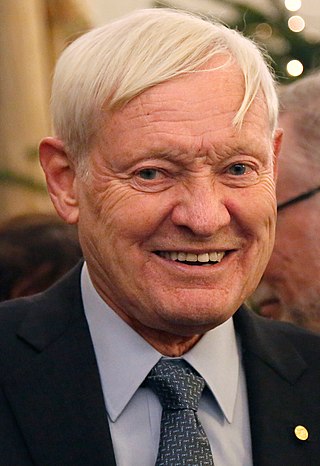
Joachim Frank ; born September 12, 1940) is a German-American biophysicist at Columbia University and a Nobel laureate. He is regarded as the founder of single-particle cryo-electron microscopy (cryo-EM), for which he shared the Nobel Prize in Chemistry in 2017 with Jacques Dubochet and Richard Henderson. He also made significant contributions to structure and function of the ribosome from bacteria and eukaryotes.
Dinshaw J. Patel is an Indian-American structural biologist who holds the Abby Rockefeller Mauzé Chair in Experimental Therapeutics at Memorial Sloan Kettering Cancer Center in New York City.
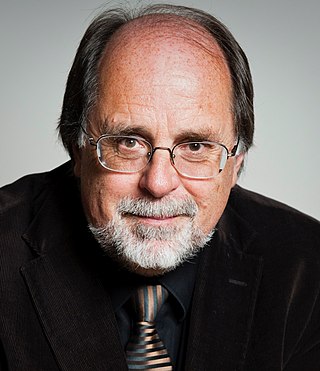
Ari Helenius is a Finnish emeritus professor of biochemistry who is known for his research in virology.

Helen Jane Dyson is a British-born biophysicist and a professor of integrative structural and computational biology at the Scripps Research Institute in La Jolla, California. She was the 15th editor-in-chief of the Biophysical Journal. She was elected a Member of the National Academy of Sciences in 2022.
The Alexander von Humboldt Professorship is an academic prize named after Alexander von Humboldt and awarded by the Alexander von Humboldt Foundation since 2008. The prize is intended to attract internationally leading scientists from abroad to Germany so that they can carry out top-level research there and strengthen Germany as a research location. The prize includes a permanent full professorship at the hosting university, plus 5 million euros for experimentally working scientists or 3.5 million euros for theoretically working scientists. This makes it the most highly endowed research prize in Germany, and possibly world-wide. A maximum of ten Alexander von Humboldt Professorships can be awarded every year to researchers of all disciplines. From 2020 to 2024, an additional six Humboldt Professorships in the field of artificial intelligence can be awarded each year.
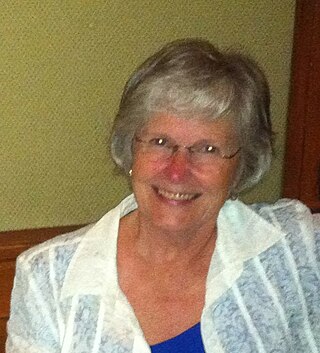
Dagmar Ringe is an American biochemist, educator, and researcher. She is the Harold and Bernice Davis Professor in Aging and Neurodegenerative Disease at Brandeis University in Waltham, Massachusetts, and holds appointments in the departments of chemistry and biochemistry.
Gerd Ulrich "Uli" Nienhaus is a German physicist who is a professor and director of the Institute of Applied Physics, Karlsruhe Institute of Technology (KIT). At the KIT, he is also affiliated with the Institute of Nanotechnology, Institute of Biological and Chemical Systems, and Institute of Physical Chemistry, and he is an adjunct professor at the University of Illinois at Urbana-Champaign.
Bonnie Ann Wallace, FRSC is a British and American biophysicist and biochemist. She is a professor of molecular biophysics in the department of biological sciences, formerly the department of crystallography, at Birkbeck College, University of London, U.K.
References
- ↑ "Jens Meiler". Vanderbilt University.
- ↑ "Jens Meiler". Science. 30 October 2014.
- ↑ Vanderbilt University. "Jens Meiler Research Overview – Protein Structure and Elucidation". Youtube.
- ↑ Kassel, Dieter. "Medikamente, so passgenau wie ein Maßanzug". Deutschlandfunk Kultur.
- ↑ "Universität Leipzig präsentiert ihre Vielfalt und Stärken in neuem Imagefilm". Leipzig Info.
- ↑ "NMR-based Structural Biology". Max Planck Institute for Biophysical Chemistry.
- ↑ "Principal Investigator". Meiler Lab.
- ↑ Salisbury, David. "The Leipzig Connection". Vanderbilt University News .
- ↑ "Jens Meiler". Alexander von Humboldt Foundation.
- ↑ Salisbury, David. "Chemist Jens Meiler receives Humboldt Foundation award". Vanderbilt University News.
- ↑ Owens, Ann Marie Deer. "Endowed chair holder celebration honors eight faculty members". Vanderbilt University News.
- ↑ "Research". Meiler Lab.
- ↑ "MRI-R2: Acquisition of a GPU cluster for solving n-body systems in science and engineering". National Science Foundation.
- ↑ "Jens Meiler". VUMC Reporter.
- ↑ "Research". The Meiler Lab.
- ↑ "ACTIVATING THESE 'KEYHOLE' RECEPTORS STOPS HUNGER". Futurity. 20 April 2018.
- ↑ Álvarez, Sonja. "Little progress in AI professorships". Der Tagesspiegel .
- ↑ "Scientists Will Soon be Able to Shut-Off Hunger With a Pill". Technology Networks.